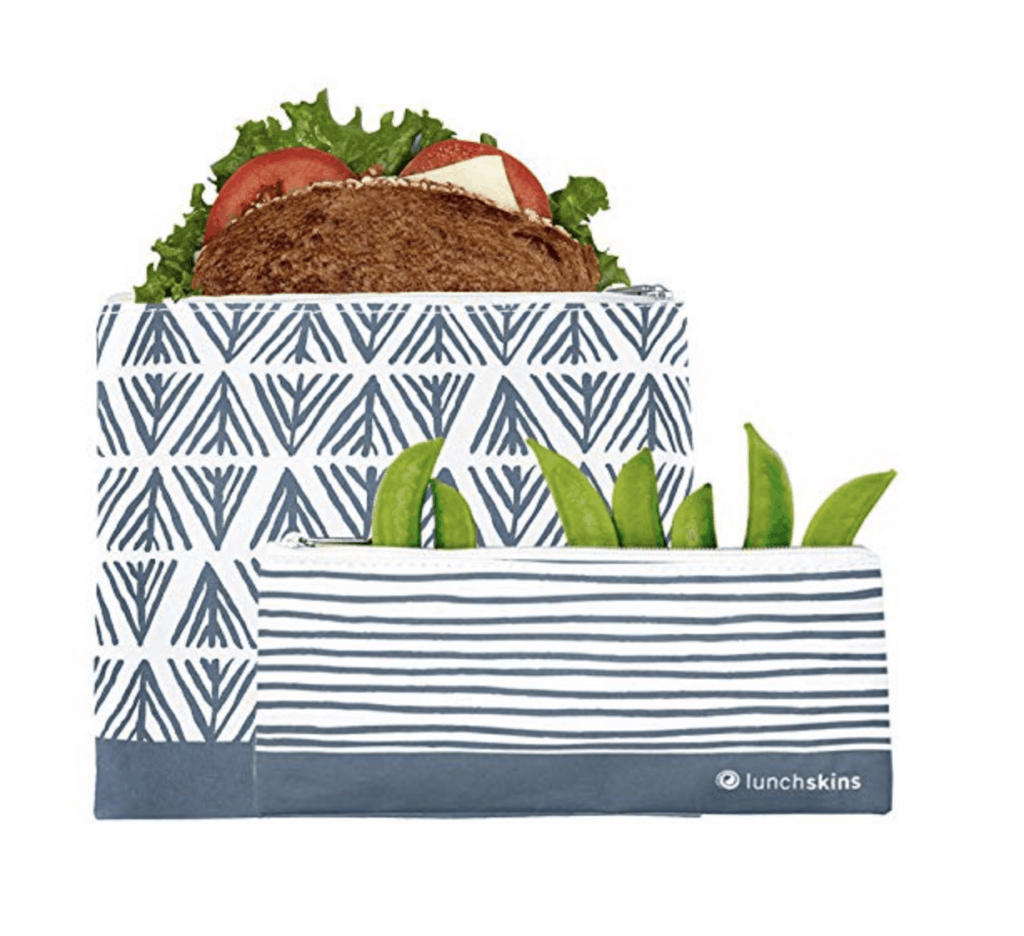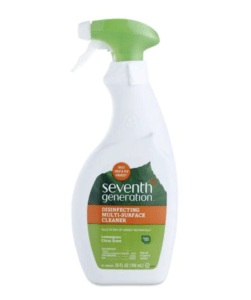3 Simple Ways to Green Your Home
With so much information at our fingertips it can be overwhelming to figure out which lifestyle changes would have the most positive impact on our planet and health. As a sustainable interior design firm, we wanted to highlight a few simple, attainable changes that you can make in your household today!

1. Switch to Reusable Snack Bags.
We produce roughly 300 million tons of plastic each year and half of it is disposable! World-wide only 10-13% of plastic items are recycled. Ziploc bags are a popular and convenient way to store food, but they have a significant impact on the environment. Plastic bags take hundreds of years to decompose and can harm wildlife when they end up in oceans and other ecosystems. Fortunately, reusable ziplock bags are a sustainable and eco-friendly alternative to disposable plastic bags. Here are some benefits of switching to reusable ziplock bags.
- Environmental Sustainability: One of the most significant benefits of using reusable ziplock bags is the reduction of waste in the environment. Every year, millions of single-use plastic bags end up in landfills or polluting the ocean. Reusable bags help to reduce this waste and contribute to a cleaner planet.
- Cost-Effective: While the initial cost of reusable ziplock bags is higher than disposable ones, in the long run, they are more cost-effective. Instead of constantly buying and disposing of plastic bags, you can use the same reusable bags for years, saving you money in the long run.
- Durable and Easy to Use: Reusable ziplock bags are made of high-quality materials, making them durable and easy to use. They come in a range of sizes and designs, and many are dishwasher safe, making them easy to clean.
- Health Benefits: Reusable bags are also healthier for you and your family. Disposable bags often contain harmful chemicals that can leach into your food. Reusable bags are typically made of food-grade materials and are free from harmful chemicals, making them a safer option for food storage.
Reduce your plastic use by starting small – replace ziplock bags with reusable ones. The dependence on single-use plastics, especially ziplocks, is a hard habit to break. Luckily, there are a multitude of great reusable options that are easy to clean (dishwasher safe!) and non-toxic. Lunchskins and Stasher are two of our favorites!
2. Ditch the Teflon!
Traditional non-stick pans coated with Teflon contain harmful highly fluorinated chemicals that are linked to a wide variety of health problems. These chemicals are also resistant to breakdown, remaining in the environment for millions of years and harming future generations.
Teflon is a synthetic material commonly used in non-stick cookware, but it poses a significant threat to human health and the environment. Teflon is made up of per- and polyfluoroalkyl substances (PFAS), a group of chemicals that do not break down in the environment and are known to be toxic to humans and animals. Here are some dangers that Teflon poses to human health and the environment.
- Health Risks: When heated to high temperatures, Teflon releases toxic fumes that can cause flu-like symptoms, including fever, chills, and headache. These fumes contain perfluorooctanoic acid (PFOA), a toxic chemical that can cause cancer, thyroid disease, and other health problems.
- Environmental Impact: PFAS chemicals are persistent and do not break down in the environment, making them a significant threat to wildlife and ecosystems. These chemicals can contaminate water sources, soil, and air, and can persist in the environment for hundreds of years.
- Food Contamination: Teflon cookware can also contaminate food with PFAS chemicals. When the non-stick coating is scratched or worn down, it can release these toxic chemicals into food, which can then be ingested by humans and animals.
- Occupational Exposure: Workers involved in the production of Teflon and other PFAS chemicals are at high risk of occupational exposure. These workers can inhale or ingest these chemicals, leading to serious health problems.
- Disposal: When Teflon cookware reaches the end of its life, it is often disposed of in landfills, where it can release PFAS chemicals into the environment. Burning Teflon cookware is also dangerous, as it can release toxic fumes into the air.
Teflon poses a significant threat to human health and the environment. PFAS chemicals used in Teflon and other non-stick coatings can cause serious health problems, contaminate food, and persist in the environment for hundreds of years. To minimize exposure to these harmful chemicals, it is recommended to switch to alternative cookware such as cast iron, stainless steel, or ceramic, which do not contain PFAS chemicals. By taking these steps, we can protect our health and the environment from the dangers of Teflon. Replace your traditional non-stick pans with ceramic or cast iron alternatives that don’t contain PTFE or PFOA. Epicurious has a great round up here!

3. Use a Non-toxic, Plant-based Cleaner
Most traditional cleaning products contain active ingredients and fragrances that are linked to asthma, allergies, and hormone disruption. Conventional cleaning products are also bad for the environment – the ingredients cause harm to marine life and drinking water, and continue our reliance on petroleum. Fortunately, plant-based cleaning supplies offer a safer and eco-friendly alternative to traditional cleaning products. Here are some environmental and human health benefits of switching to plant-based cleaning supplies.
- Safer for Human Health: Conventional cleaning products often contain harsh chemicals that can irritate the skin, eyes, and respiratory system, causing health problems such as asthma and allergies. Plant-based cleaning supplies are made with natural ingredients that are safer for human health and do not cause irritation or allergic reactions.
- Eco-Friendly: Traditional cleaning products can have a negative impact on the environment. They often contain chemicals that can pollute waterways, harm wildlife, and contribute to climate change. Plant-based cleaning supplies are biodegradable, meaning they break down naturally without harming the environment.
- Non-Toxic: Plant-based cleaning supplies are made from natural ingredients such as citrus, vinegar, and essential oils, making them non-toxic and safe for children and pets. Conventional cleaning products can be toxic if ingested or inhaled, causing serious health problems.
- Cost-Effective: Plant-based cleaning supplies are often more cost-effective than conventional cleaning products. Many natural ingredients such as baking soda and vinegar can be found in most households and can be used for multiple cleaning tasks, reducing the need to purchase multiple cleaning products.
- Effective Cleaning: Plant-based cleaning supplies are just as effective as conventional cleaning products. They can effectively remove dirt, grime, and stains without the use of harmful chemicals.
Start the process of replacing your traditional cleaning products (ie 409, Windex etc) with plant-based alternatives – Seventh Generation and Ecos are two effective options.
Ready to learn more about how to make your home even healthier and more sustainable for you and your family? Pick up a copy of one of our favorite resources “Healthy Child Healthy World” by Christopher Gavigan or head over to our Green Design page.
